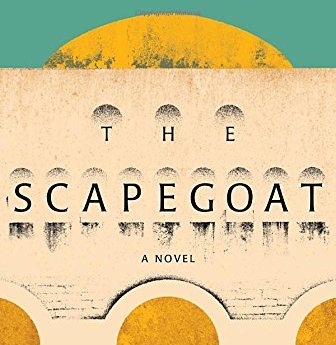It is always a good sign when a book makes you laugh on the first page. In the opening scene of Sophia Nikolaidou’s novel, The Scapegoat, an American reporter named Jack Talas observes a dirty and scabbed old villager, “A man who took life as it came and made the most of it—or so he seemed to the American, who’d been raised on eggs and bacon, had studied at expensive schools, had seen plenty of poor people in photographs. Now he wrote dispatches about them, and he did so with compassion.”
With compassion. This phrase evoked such a bombastic, self-assured character it made me laugh out loud. However, if you’re dead set on comedy, that’s too bad. Because by the next page, Jack Talas is a corpse, found floating in the Mediterranean with cuttlefish eggs in his eyelashes. The Scapegoat is based on the murder of CBS reporter George Polk, who, like his fictional double Talas, was in Greece in 1948 to expose the government’s corrupted use of American aid relief.
Talas makes enemies of everyone: the government, the communists, and even the Americans. But it is a fellow journalist, named Manolis Gris, who is accused of murdering Talas. However, the forces behind Gris’s indictment reach far beyond Gris himself.

